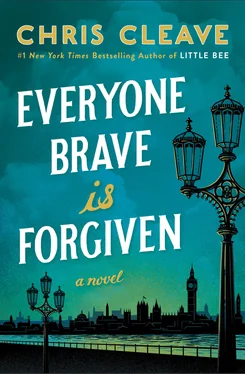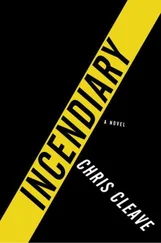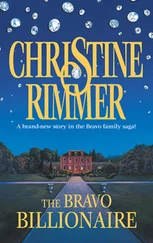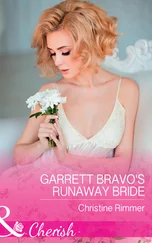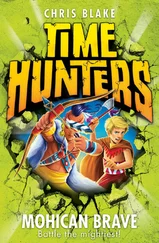He returned to his cot and tried to make sense of the letter. He hadn’t slept since reaching the barracks at seven that morning and collapsing at the gate. The high whining sound was still in his ears. He read the first paragraph again. Dimly he understood that his friend, Tom, was writing to him from the point of view of their stuffed cat. Caesar he could call to mind easily, fluid and feline as he stalked the old garret. He found it harder to recall Tom’s face, and when he did so, it was confounded with elements of Duggan’s. The man had been so pale, prone on the red grass in the red bloom of the sunrise. His lips had seemed dark as cocoa, although of course they must have been blue. The red light had been blind to the color. The dark lips had moved for a while — Duggan had said something — but Alistair’s ears were blown. The lips, excused from their color, had formed words relieved of their sound.
He noticed his hands holding the thin blue paper of the letter. Despite the shower he had taken, there was a black residue under his fingernails and in the creases of his knuckles. He had tried to hold Duggan’s head up — he remembered it now. As if we hadn’t all to drown.
Last night Tom took Mary to see a show at the Hammersmith. I wasn’t invited, I must disgustedly observe, but from what ensued upon their return I must conclude that the evening went well. Ah, Alistair, I always said that you were astute, for a human! You noticed straight away, of course, that I wrote “upon their return,” and yes, it is quite true. Abandoning propriety, Tom invited Mary to inspect the old garret, and inspect it she did! You should have seen the scorn with which she surveyed the living arrangements — I am quite sure that she was one of your regimental sergeant majors in a past life. And then, before Tom walked her home, the two of them danced to the gramophone and — oh, I tell you what, I can’t be bothered to be the cat anymore. Mary’s a knockout, Alistair, that’s what I’m trying to tell you, and I’m grateful to you for making me go through with that first dinner.
The residue on his fingers troubled him now. He put the letter down and ran hot water into a washbasin in the row at the end of the dormitory. He dipped his hands and let them soak. The blood dissolved from his fingers. It leached in tiny red clouds, escaping from each fold of skin and diffusing until the water in the white basin turned a pale orange. He dried his hands on his vest.
The thing is, Alistair, I am keener on her than she is on me. I know she wants me to give her a job, and I fear that as soon as she realizes I have no job to give her then she will be off. And then there is the issue of her social standing—
Alistair closed his eyes, thinking of their gramophone — the Columbia portable with its shabby leatherette case. When one opened it up, there was unannounced wonder: the burnished Plano-Reflecto tone arm, the plush red platter that the discs spun upon, glossy debs on a velveteen settee. It was perfectly built for peacetime: the balance of the tone arm assuming a stable foundation, the calm government of its rotation implying an excess of time.
— since she is of an entirely different social class, and I cannot help but think that her interest in me might have more to do with what her family will think than with what she feels. But perhaps I am underestimating her. Perhaps you are thinking that I simply ought to take my courage in both hands and—
Alistair let the letter fall. He wondered what they had danced to. Al Bowlly was the thing that season. “Hold My Hand,” if Tom had dared. Lying on his cot, Alistair heard the music quite clearly in his mind. Hold my hand / No matter what the weather / Just you hold my hand / We’ll walk through life together … He thought of Tom dancing with the girl, and he was happy. Sleep came, finally, with the music swelling into the vacuum in his mind where there had been only that high, thin whining. The gramophone spun and he slept, with the letter still in his hand. He had kissed Duggan as he was dying. It had seemed the only thing to do.
The company stood around Alistair’s cot now. No one spoke. One man brought a blanket and laid it over him. Another took Alistair’s boots from the paraffin heater before they desiccated, and rubbed black polish into them and buffed them up and aligned them carefully on his locker. There was always an inspection at dawn.
AT BREAKFAST PALMER BROUGHT the post on a pewter tray. The silver was used only when Mary’s father was in residence — this being one of a hundred idiosyncrasies that might have originated in some long-forgotten instruction from the family, or arisen spontaneously from the coppery circuitry in Palmer’s internal machinery that gauged what was fitting. If Palmer were lost to them, along with the stock of method and lore of which he alone was the repository, then Mary felt sure the family would be obliged to disband — to screech apart from one another as atoms released from their bond. Palmer, then: with the morning post, on the pewter tray that lent the white envelopes an oysterish hue.
“Oh!” said Mary. “Here’s another one from Zachary.”
“But look here,” said Hilda, “you are hardly the nigger’s mother.”
“No, I daresay I would have noticed.”
Hilda, who hadn’t Mary’s facility for overlooking Palmer’s hovering presence, colored slightly. Mary took Zachary’s letter from the envelope.
“I hope you don’t encourage him by replying?” said Hilda.
“Darling, I wrote to him first. Anyway, must you call him ‘nigger’? It doesn’t seem entirely big-hearted.”
Hilda yawned. “I’ll say ten Hail Marys.”
“The Negroes are no viler than we, you know. In faculty, fitness and faith they are our perfect equal.”
“Hardly!” said Hilda. “But I’ve nothing against them. I might even prefer them to other foreigners, since at least one knows where one stands.”
“Does one?”
“Well, one really oughtn’t to write to one.”
“Stop it,” said Mary. “Anyway, this won’t be writing so much as marking the child’s work. Honestly, look at this!”
Deere Miss Northe, I doe note licke the villije the uthae chilrene are verie meene. I doe note licke the howse waire I am staeine the woemane is verie verie meene.
Hilda squinted at the pencil work. “How old do you say the child is?”
“He is ten.”
“And is this him writing with his fingers, or his toes? Only I’ve heard they have equal facility with both.”
“Oh, tosh. His fingers are used for the extraction of nasal mucus, or for counting when under duress. His feet are reserved for football. He is no different from any other boy, you see, except that his spelling is quite original. He is a perfect spark, only no one bothers to teach the Negroes properly.”
Hilda sniffed. “He spells as if he has picked up a job lot of letters ‘e’ on the cheap, and now is anxious to offload them.”
“But wouldn’t you? If I had never been taught to spell, I daresay I might chuck in an ‘e’ whenever reasonable doubt arose.”
“You’re saying you can’t blam him?”
Mary gave an approving look. “Now you’re getting it.”
The uthere childrene chaese me and whene theye catche me theye tacke offe my claothes and theye hurte me wythe styckes ore nyves plese helpe me.
Mary’s smile froze.
“Yes,” said Hilda, reading over her shoulder, “but children exaggerate, don’t they?”
And I am soe colde it is soe colde hiere plese helpe.
Mary put the letter down on the pewter tray.
“I’m quite sure it can’t be so bad as all that,” said Hilda. “With my nephews, one simply has to remind them to jolly well wear a jumper.”
Читать дальше
